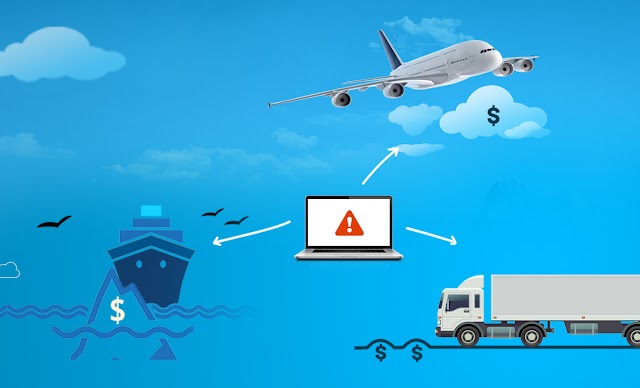Real-Time Information An Inseparable Bond in Freight Forwarding Business
In the age of just-in-time supply chain, same-day delivery is becoming the new norm where customers demand more real-time information. Freight forwarding companies that cannot collect, retrieve, collate, and disseminate real-time information about their operations will struggle to compete in the age of digitalization. The market and customer demands have changed over the past few years, especially during COVID-19; but until today, many freight forwarders are still stuck in their age-old legacy systems and applications that operate in silos and…
The Hidden Costs of Using Legacy Freight Forwarding Systems
In recent years, the logistics and freight forwarding industry has confronted tremendous change, driven by tech innovations, dynamic consumer expectations, and stringent regulations. The situation is being made worse and more demanding by the Covid-19 crisis, which is impacting the revenue margin of freight forwarders. The buzzword ‘hidden costs’ is pushing freight forwarders to rethink and redesign their modus operandi. But often neglected when they analyze the reasons for their hidden costs is the use of the legacy freight forwarding system.…
What If Your Freight Forwarding Business Had a Control Tower?
Today’s competitive global business environment, dynamic customer demands, and unbroken pressure to reduce costs and increase revenues and profit margins are reshaping the traditional freight forwarding business. These critical business challenges are driving the necessity to create strong end-to-end freight forwarding capabilities with visibility and transparency across the organization. To provide visibility, analytics, speed, reliability, and transparency within the entire operations, the freight forwarding visibility principles are increas…
Trends that Will Transform Freight Forwarding Industry
What are the most important success factors in logistics and freight forwarding? The factors that affect the industry the most are the client’s expectations, technology adoption, human resources, and supply chain management. COVID-19 has forced freight business owners to rethink their business strategy, as the industry evolves from an efficient delivery system to a marketing mechanism with customer satisfaction at its center. There is also a growing focus on technology to acquire and retain customers. Moreover, the phenomenal growth of e-comme…
10 Tips to Consider Before Choosing Freight Forwarding Software
Freight forwarding is an industry with tons of challenges and complex operations, made even more complicated by the COVID-19 lockdown crisis. During this period, freight forwarders have realized the importance of digitalization, particularly of investing in the right technology to help in business continuity under such circumstances. There are some key components a freight forwarder must consider before investing in logistics software. Remote Access – The locked-down situation has made remote access and the ability to work from anywhere the m…
Is Your Forwarding Business in Digitization, Digitalization or Digital Transformation?
The freight forwarding industry is rapidly changing in the wake of new technologies. The nature of freight forwarders not being the cargo owners or transport operators has led to the perception they cannot force any substantial change in the industry. However, the way they conduct their business and serve their customers impacts the industry as a whole. Freight forwarding companies across the globe are at various stages of adopting technologies, these levels being commonly termed as digitization, digitalization, and digital transformation. Eve…
Measuring ROI from Using Freight Forwarding Software
In today’s dynamic supply chain industry, delivering the products to customers demands accuracy, on-time delivery, adherence to defined regulations, and lower cost. Adopting the right freight forwarding software can give companies a competitive advantage in meeting customers’ expectations. But before investing in software, one must calculate the ROI (Return on Investment) and the time required for recovery. Utilizing the right technology provides enhanced operational efficiency, timely delivery of shipments, real-time tracking, and uninterrupt…
Going Paperless Critical in Freight Forwarding
Just a few months ago, traditional freight forwarders still relied on paper and human intervention. It had to take the global pandemic and the ensuing lockdowns for the industry to realize the importance of going paperless through digitalization. The International Air Transport Association had long ago introduced the initiative to replace paper with digital documents throughout all elements of the cargo supply chain, including shippers, forwarders, customs, and consignees, to improve efficiency and bring a positive impact on the environment. B…
Selecting Freight Forwarding ERP Technology Post COVID 19
COVID-19 has disrupted the way we operate our businesses, and the scenario for logistics and freight companies is no exception. Being in a highly competitive industry during a global pandemic, it is vital that you improve your forwarder business, including remote work echo system. To speed up your business processes in today’s remote work reality requires a proper assessment of business needs while selecting the right enterprise resource planning (ERP) technology. Undoubtedly, implementing an ERP system involves massive investments of money, r…
How to Choose the Right ERP for your Logistics Business
Unlike other industries, logistics is not limited to a single line of activity. A typical logistics company may be involved in one or varied activities such as Freight Forwarding, Transportation, Warehousing, regulatory compliance, 3PL, etc. And then there are the typical activities of a business-like Marketing, Sales, Customer Service and Finance, etc. These features make the logistics sector unique and unlike any other industry. When you plan to implement an ERP solution for your freight forwarding business the foremost task is to evalua…
Know About The author
schedule for demo
Popular Posts















Connect with us